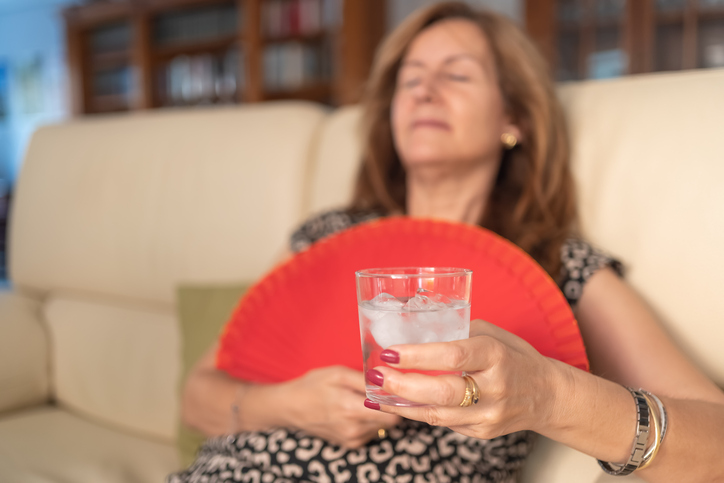9 Fast facts about Menopause
Looking for a quick rundown on what Menopause might mean for you?

There is a lot of information available about Menopause, and it can seem overwhelming.
The average age of Menopause is 51 but can be as early as in the 40s, and if you want a quick look at what it can involve then see below.
1. Up to 75% of all women will have hot flushes, but that does not mean necessarily that you will too.
It can be related to your family history or your lifestyle and women on a vegan or vegetarian diet which includes soy can often have fewer flushes.
2. For 80% of women, hot flushes occur for 2 years or less. A small percentage of women experience them for more than 2 years.
3. Sadly, some women can have flushes for more than 11 years and into post Menopause. In fact, I am hearing from more women who are describing hot flushes post Menopause.
Although these can certainly be hormonal, they are often also related to increased stress or anxiety.
4. One third of women say their flushes are often and severe and if you are suffering these, it has a definite and negative impact.
The knock on effect of such severe flushes will affect your overall health and often your sleep too.
6. Smoking can raise your chance of having flushes and recent studies have shown that nicotine, acting in receptors on the cells that line blood vessels, can cause new blood vessels to form in the skin.
Nicotine can make your face turn red as it stimulates the release of adrenaline.
7. Flushes can last up to 5 minutes and if they occur in bed and with sweating, are called night sweats. This is always classed as a severe symptom, because it can disrupt your sleep and so affect your health in other ways.
8. Flushes can be triggered by spicy foods, alcohol and caffeine.
But women can have individual triggers so always check what you have been eating or drinking just before having a flush to see if there’s a common factor that causes you to flush.
9. Being overweight can also be a trigger for flushes, and unfortunately at menopause that is more often the case than not.
It is oestrogen dominance that is often associated with being overweight and so you may need to balance that with progesterone.
Helpful information:
If you need some help with your symptoms it may be that you need progesterone or oestrogen or both, and so the following article can be helpful.
https://anna.blog.wellsprings-health.com/which-hormone-or-hormones-might-you-need/


















